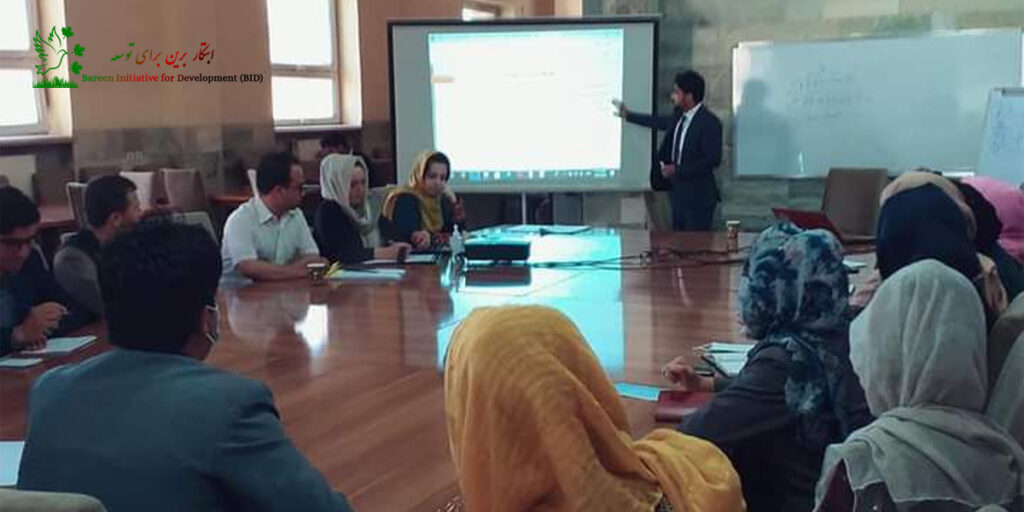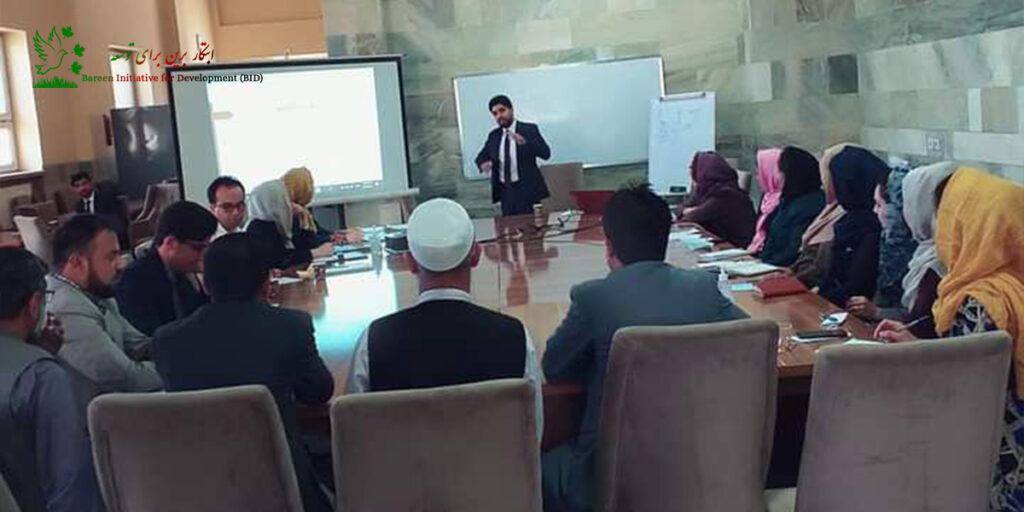
The Bareen Initiative for Development held a conference titled “What is Human Rights?” on July 23, 2021, for the employees of the Ministry of Mines and Petroleum of the Islamic Republic of Afghanistan. Mr. Abdul Hakim Ulfat, a university professor and human rights expert, was one of the speakers at the conference.
At the beginning of this conference, Mr. Ulfat defined human rights. He stated that human rights are a set of fundamental rights and freedoms that belong to all individuals, regardless of race, sex, nationality, ethnicity, religion, or any other status. These rights are inherent and inalienable; no one can take them away from humans.
Mr. Ulfat has pointed to the foundations of human rights and stated that they are based on the principles of humanity and the inherent dignity of the human being. These principles include equality, justice, freedom, and human dignity.
He also referred to international human rights instruments such as the Universal Declaration of Human Rights, the International Covenant on Civil and Political Rights, and the International Covenant on Economic, Social, and Cultural Rights. Ulfat stated that these instruments are the cornerstone of human rights at the global level and that many countries, including Afghanistan, have committed to upholding human rights by signing them.
Mr. Ulfat emphasized that governments are responsible for promoting and protecting human rights in their country. These responsibilities include:
- Enacting laws and regulations to protect human rights
- Educating and raising awareness about human rights
- Creating independent institutions to monitor the human rights situation
- Addressing human rights violations
Mr. Ulfat pointed to the human rights situation in Afghanistan, particularly about women and children. He stated that, unfortunately, due to wars and other problems, many people in Afghanistan are deprived of their basic rights, such as the right to life, education, work, and freedom of expression. He also pointed to some of the challenges facing human rights in Afghanistan, including the ongoing war and insecurity, poverty and inequality, corruption, weak rule of law, gender discrimination, and violence against women and children.
He pointed to some of the solutions to improve the human rights situation in Afghanistan, including establishing peace and stability in the country, strengthening the rule of law, fighting corruption, promoting gender equality, protecting the rights of women and children, educating and raising awareness about human rights, strengthening civil society institutions and cooperating with the international community.

At the end of the conference, participants were given an opportunity to ask questions and Abdul Hakim Ulfat answered various questions about human rights in Afghanistan. Ulfat emphasized that respect for human rights and the effort to fulfill them require collective efforts. He stated that we must all strive to create a just, peaceful, and democratic society in Afghanistan.

